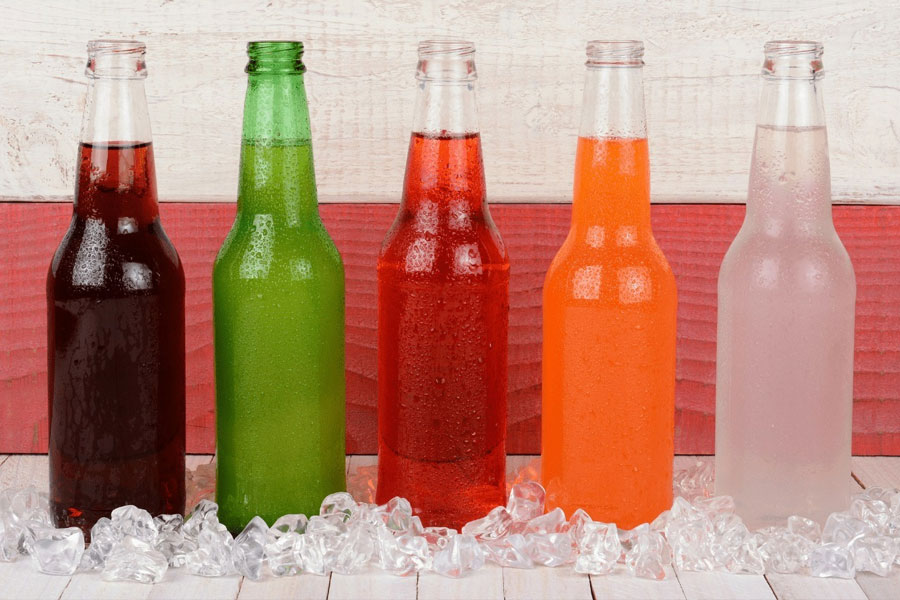In a recent development, the Sindh government has imposed a ban on the sale of glass-bottled drinks in schools across the province.
This decision comes after a student in Karachi died from a broken glass bottle. The move has been welcomed by parents, teachers, and health experts alike, who see it as a necessary step to ensure the safety and well-being of students.
Glass bottles have been a popular choice for drinks in schools for many years. They are cheap, easily available, and can be recycled. However, they are also a safety hazard, especially in schools where children are often careless and prone to accidents. Broken glass can cause serious injuries and even lead to infections and other health problems.
The Sindh government’s decision to ban glass-bottled drinks in schools is a welcome move that will help protect the health and safety of students.
The ban has been widely praised by those who have long been calling for stricter regulations on the use of glass bottles in schools. They argue that glass bottles are not only a safety hazard but also a potential source of contamination, especially in areas where clean drinking water is not easily available.
Parents and teachers have also welcomed the move, saying that it will help create a safer and more conducive learning environment for students. Many parents have expressed concern over the safety of their children in schools and believe that the ban on glass-bottled drinks will go a long way in addressing their concerns.
Lahore Grammar Student Brutally Tortured by 102 Gang Members
The Indicent in Sindh School Leading to Student’s Death
Last week, a 5th grader passed away after suffering from fatal injuries on his neck caused by a glass bottle. Huzaifa was hurt during the school’s function of its secondary section on its rooftop, the FIR stated.
The incident happened at a private school in Malir’s Model Colony area on February 24, during which Huzaifa was injured. He was brought to the Civil Hospital’s trauma centre and was under treatment in its intensive care unit (ICU).
According to reports the school administration had permitted to set up a soft drink stall. Directorate of Inspection/Registration of Private Institutions Additional Director Rafia Javed stated in the report that they had suspended the school’s registration and imposed a fine of Rs75,000 for “irresponsibility and negligence”.
Ban on Soft Drinks in School A Much-Needed Policy
Soft drinks are popular among children and teenagers and are often sold in schools as a convenient and affordable option. However, soft drinks contain high levels of sugar and artificial additives that can have harmful effects on students’ health.
There are many reasons why soft drinks should be banned in all schools, and this article will explore the harmful effects of soft drinks on students and why a ban is necessary.
Firstly, soft drinks are high in sugar, which can lead to weight gain and obesity. Consuming excessive amounts of sugar can cause insulin resistance, leading to type 2 diabetes.
According to a study published in the Journal of the Academy of Nutrition and Dietetics, adolescents who consume more than one can of soda per day have an increased risk of developing metabolic syndrome, which is a combination of conditions such as high blood pressure, high blood sugar, and obesity.
LUMS Faculty Member Calls Out Institute for Promoting Controversial Activities
Secondly, soft drinks are also linked to dental problems such as tooth decay and erosion. The sugar and acid in soft drinks can erode tooth enamel and cause cavities.
A study published in the Journal of the American Dental Association found that adolescents who consume more than three cans of soda per day are more likely to have dental problems than those who consume less than one can per day.
Thirdly, soft drinks can also affect students’ academic performance. The high levels of sugar in soft drinks can cause a rapid spike in blood sugar levels, which can lead to a crash in energy levels, making it harder for students to concentrate and focus on their studies.
Lastly, soft drinks can also have a negative impact on the environment. Soft drinks are often packaged in plastic bottles, which can contribute to plastic waste and pollution.
According to a report by the Ellen MacArthur Foundation, the equivalent of one garbage truck of plastic waste is dumped into the ocean every minute, and plastic pollution is a significant threat to marine life and the environment.
A study conducted by the National Institute of Mental Health found that students who consume high levels of sugar are more likely to have learning difficulties, hyperactivity, and attention deficit disorder.
Stay tuned to WOW360.
